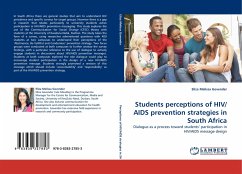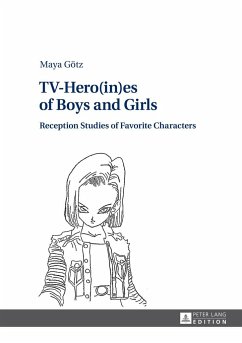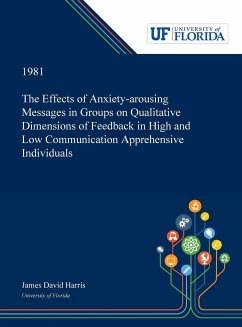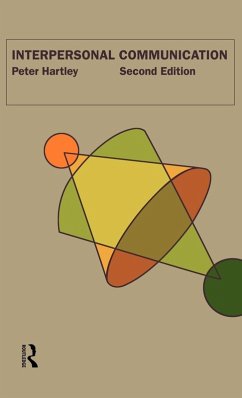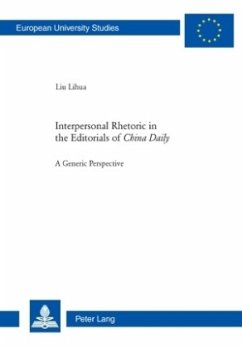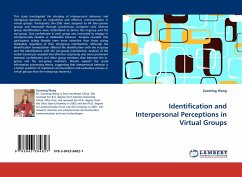
Identification and Interpersonal Perceptions in Virtual Groups
Versandkostenfrei!
Versandfertig in 6-10 Tagen
32,99 €
inkl. MwSt.

PAYBACK Punkte
16 °P sammeln!
This study investigated the interplay of interpersonal behaviors and intergroup dynamics on evaluations and affective communication in virtual groups. Participants (N=256) were assigned to 64 four-person groups and interacted through synchronous computer chat. Distinct group identifications were instantiated to derive the in-group and the out-group. One confederate in each group was instructed to engage in interpersonally likeable or dislikeable behavior. Analysis revealed that participants acting likeably were more attractive than those acting dislikeably regardless of their intergroup member...
This study investigated the interplay of interpersonal behaviors and intergroup dynamics on evaluations and affective communication in virtual groups. Participants (N=256) were assigned to 64 four-person groups and interacted through synchronous computer chat. Distinct group identifications were instantiated to derive the in-group and the out-group. One confederate in each group was instructed to engage in interpersonally likeable or dislikeable behavior. Analysis revealed that participants acting likeably were more attractive than those acting dislikeably regardless of their intergroup membership. Although the identification manipulation affected the identification with the in-group and the identification with the out-group membership. Analysis of the verbal transcripts revealed that affective reciprocity was more prominent between confederates and other group members than between the in-group and the out-group members. Results support the social information processing theory, suggesting that interpersonal behavior is a better predictor of relational communication and evaluative process in virtual groups than the intergroup dynamics.




